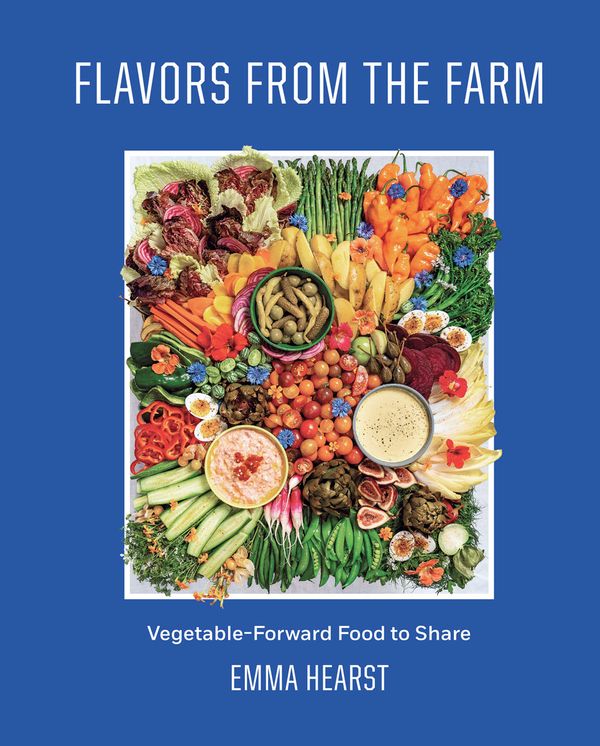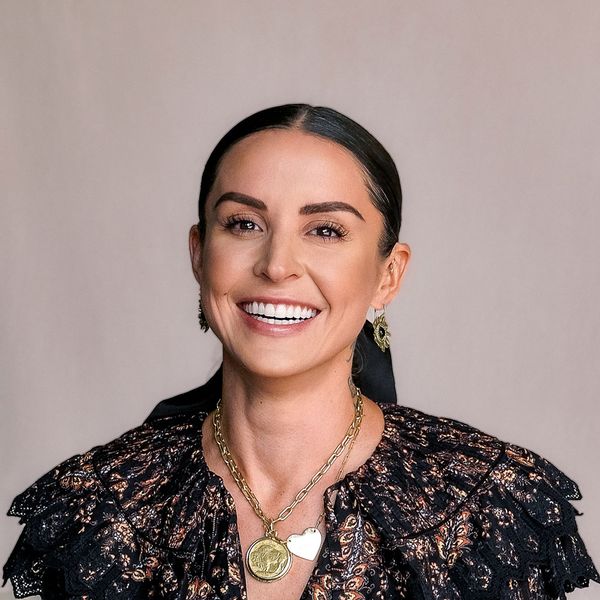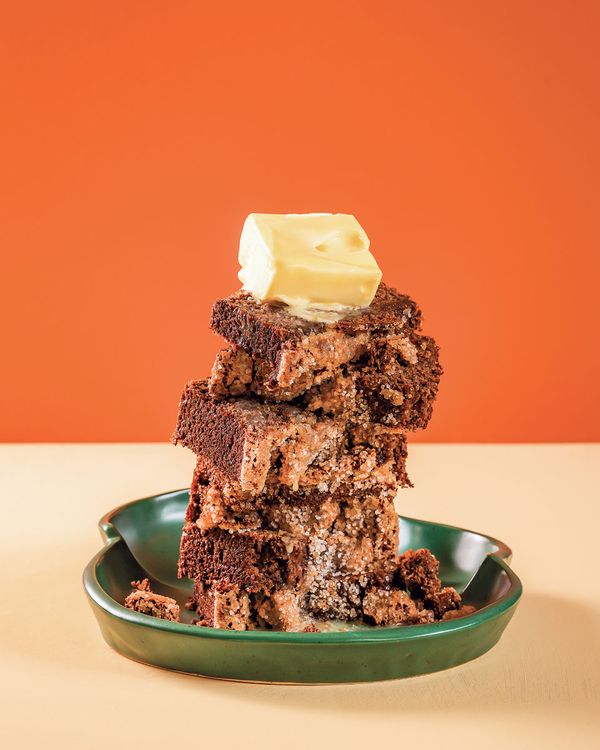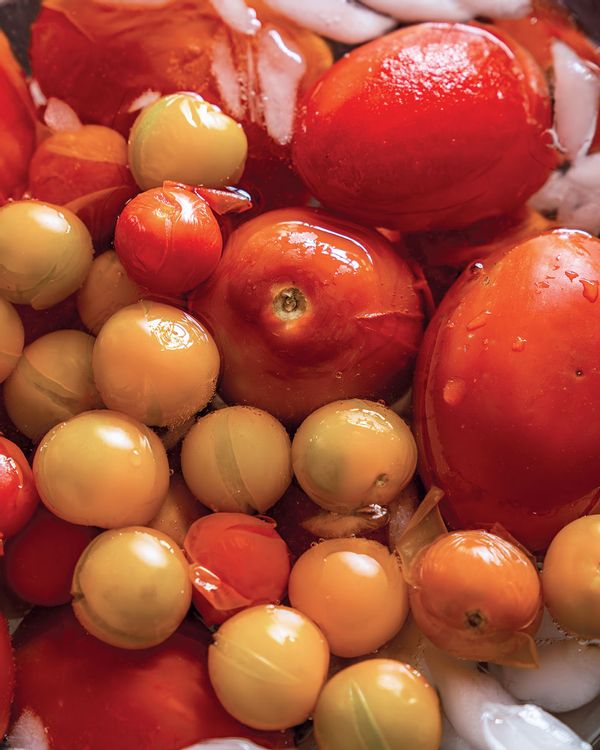
Emma Hearst has held many titles — James Beard-nominated chef, former restaurateur, farmer, cookbook author, youngest-ever "Icon Chef" competitor, store owner, wife and mother — but to me, she is best known as the former co-owner and chef of Sorella, an New York City restaurant (and subsequent cookbook) that was formative in my culinary "adolescence," if you will.
Hearst, whose vibrant new cookbook "Flavors from the Farm: Vegetable-Forward Food to Share" is out now, has settled on a 60-acre farmstead upstate. The book follows that sentiment, with produce-focused, elevated dishes that are simple to prepare but bodacious in flavor and color, all made with with the humblest of ingredients.
Of course, placing a focus on gardening and produce is beneficial for many reasons, from sustainability and health to animal rights and economic issues. In addition, gardening can also be something of a fun hobby for some — or perhaps even a vested passion, too. Furthermore, many folks are feeling the impact of food inflation, so being able to build a meal from your own garden is freeing financially, too.
Clearly, prioritizing produce is a win-win.
Hearst recently spoke with Salon Food about her ethos towards cooking, her adoration for fresh produce, the genesis of her love for food and much, much more.

What about vegetables (and fruit!) are so special to you?
Well, I have a farm, and let me tell you, great vegetables and fruit take a lot of work, time and money to grow. There are so many elements — like weather — that are just out of one's control, so when the universe aligns and you get a really fantastic product, it must be treated with respect!
Do you have a favorite recipe in the book?
Though they are all dear to me, I would have to say that Tomatoes with Brown Butter might be my favorite because of its simplicity and elegance. We also grow bad-ass heirloom tomatoes on the farm, so it is always a treat to have once they come into season.
What stands out for you as a formative moment that got you into cooking or food at large?
When I was four years old, my parents took me on my first trip to NYC. They got tickets to the Rockette's Christmas Show and planned to take me to fancy dinners, along with a trip to the glorious old school FAO Schwarz, which has since moved. Being an only child, I was always treated like a little adult and therefore acted like one too.
I always had a love of food as a little person and remember getting insulted when handed a children's menu at any restaurant. Many of the restaurants we went to during this trip did not allow children, but my dad made sure to assure them I would not act like one! (laughs)
We dined at La Caravelle, La Cote Basque, The 21 Club and The Four Seasons Restaurant, all of which are now either closed or have been taken over by new people. Being the only little person in the room, these restaurants all gave me the royal treatment. I was enamored by the tableside service, beautiful cuisine and the art of how fine restaurants worked. It was like a dance performance.
It was my meal at The Four Seasons, where I got to sit poolside in their grand dining room, when I knew I needed to become a chef for the rest of my life and that would be the path I followed as I grew up.
Tell me a bit about your farm?
My farm has been in operation for nearly a decade now. My husband and I knew we did not want to be involved in restaurants in the same way we had before (he is also a chef), but we both wanted to be involved in food. He always had a dream to farm. I did not. So, we made a deal!
We would farm, but we would only grow beautiful, interesting varieties of very chef-driven produce that we would want to buy ourselves as chefs. We knew positively nothing about how to farm when we started, but learned more and more each year through many failures!
As we put more infrastructure into the farm, our capacity in our offerings grew as well. We now grow about 300 varieties of chef-driven produce, flowers and herbs. In addition to that, we have a commercial kitchen in our barn and get to make amazing meals and products with all the beautiful things that come out of our field. The farm also has an apiary operation that produces incredible honey, two rescue steers, and a smattering of laying hens.

I've heard about Farm Shoppe (wonderful things!) — can you explain a bit about it for our readers?
Farm Shoppe is exactly what the name is and so much more! It is where we showcase everything from the farm for customers to enjoy. We sell our produce and flowers in addition to our line of hot sauces and condiments, all of our honey, our grab and go foods and our new book!
In addition to our farm products, we carry a smattering of our favorite pantry items and kitchen tools we cannot live without, antique table attire and all things meant for having fun and entertaining with ease and style. I curate all of our inventory and wanted a sense of whimsy, style and FUN throughout.
When people enter they definitely need a moment to soak it all in because there is a lot going on in my tiny jewel box of a shop. My goal is for the shop to serve as inspiration and reprieve from this crazy world. I want it to leave people feeling happy and hopefully they spread that happiness out into the great beyond.
For those looking to get into gardening or planting their own seeds, what would you recommend?
I would highly recommend fresh herbs! Herbs are something we are obsessed with on the farm and in my opinion, your cooking is only as good as your fresh herbs. They are essential in making a meal pop. Whether you have a kitchen window, balcony or full yard, herbs can always be grown and will always be worth their weight in gold in the kitchen.
What was the development process of the book like? How did it go from an initial idea to a fully formed, beautiful cookbook?
My process generally comes spilling out of me, and I have a pretty clear vision for nearly anything I do.
I wrote this book over the period of about four months during the winter of 2022-23. Once it was outlined and written, we began to tinker here and there and commence on the photography portion of the book. My brother-in-law, James Barker, who is my business partner, does all of our photography, so he and I went to work on styling and shooting the entire book ourselves at both our barn and my parents house. All of the photography was wrapped up in a few months and voila! We handed it over to our publishers so we could suss out page design, branding etcetera. It was done and off to print by late fall of last year.

I was (and am) obsessed with the Sorella cookbook; I almost staged there in culinary school! How would you say your time with Sorella, plus all of your other culinary accolades and career experiences, impacted your food outlook and recipes in this book?
WOW! That is so sweet and what a small world! I opened Sorella at the ripe age of 21 and didn't know the first thing about running a business so during those years I definitely learned a lot through its successes and failures. The Sorella book was definitely more restaurant-y food because well, it was a restaurant. Many restaurant cookbooks cannot be executed with ease at home unless you have a real desire to cook them.
Being a busy small business owner and a mom, and not being in restaurants any longer, I knew I wanted this book to be very flexible and not intimidating. I've been doling out advice to our customers verbally over the past 10 years on the best ways to use our produce once they get home and this was an opportunity to give them a hard copy version of some of the ways I cook at home.
How would you define "vegetable-forward"?
Vegetable-forward means that the produce is the focus of the dish rather than placed on the sidelines. Many of the recipes are not vegan or vegetarian, but they all showcase the produce first and foremost any meat or dairy serves more as a garnish.
For a particularly picky eater, regardless of age, what would you say is a good gateway vegetable recipe in the book?
The Fatty Bistro Salad is one that I find everyone, including my own picky 6 year old, finds hard to turn down. The punchy dressing, fatty cheese and crisp lettuce are addictively good.
I'm obsessed with the "conduct of the kitchen" section. How would you distill that for our readers?
A lot of people can get overwhelmed with cooking, so this was my way of simplifying the language behind what really matters in the kitchen to make it be the most useful expression of oneself and distilling down what is truly needed in the home to cook with ease and improvisation.

You dedicate the book to "small farms and artisans out in the world doing beautiful, difficult, and meaningful work." Can you talk a bit about that?
Many small farms, really any farmers in general, and artisans producing food do not get the recognition they deserve in this country. They are so valuable and this world would be a shadow of what it is without these products. It is a labor of love to grow food in any capacity, so I just wanted to give a shout out to all of those people out there in the world who are making it happen.
Cabbage au poivre — brilliant! How did that dish come about?
This dish literally came about when I was having Steak Au Poivre at home one night and I served it with a side of grilled cabbage wedges. Cabbage can be thought of as a rather mundane vegetable and is generally turned into a slaw of sorts. When caramelized and cooked slowly, it takes on a meaty texture and its sweetness comes out. It pairs fabulously with a peppery creamy Au Poivre sauce!
Even the way certain dishes are titled are positively mouth-watering: Peeled Tomatoes with Burnt Toast & Torn Herbs in Cold Cream, Dripping Tomatoes with Mustard Vinaigrette & Aged Cheddar, Golden Melting Potatoes, etcetera. How do you normally go about naming your dishes?
The only thing I love more than eating food is talking about it! I think how we talk about things in life, whether it be ourselves, the world or a menu item, shapes the outcome so it's very important to use the right adjectives to assist in making them the most delectable versions of themselves. If you like these names then just wait until you see my next book! I get crazy [laughter].







